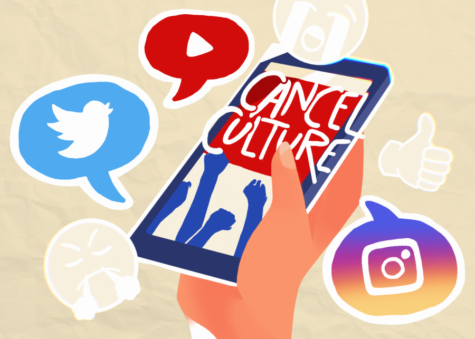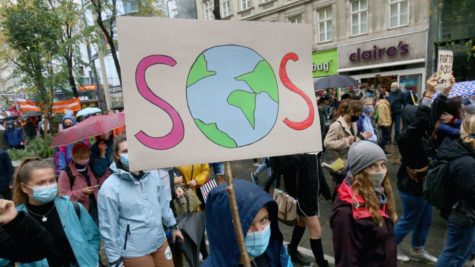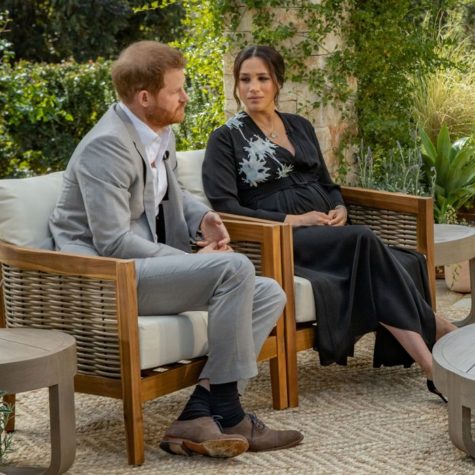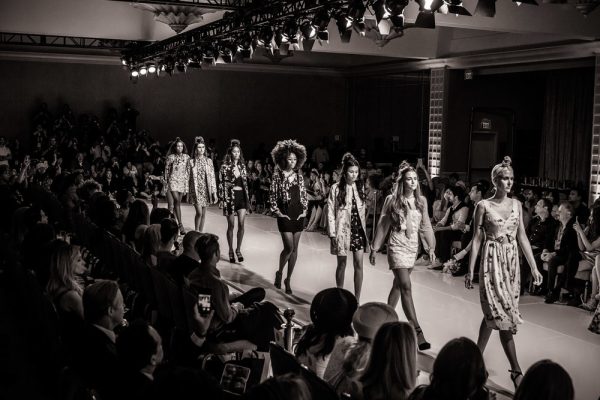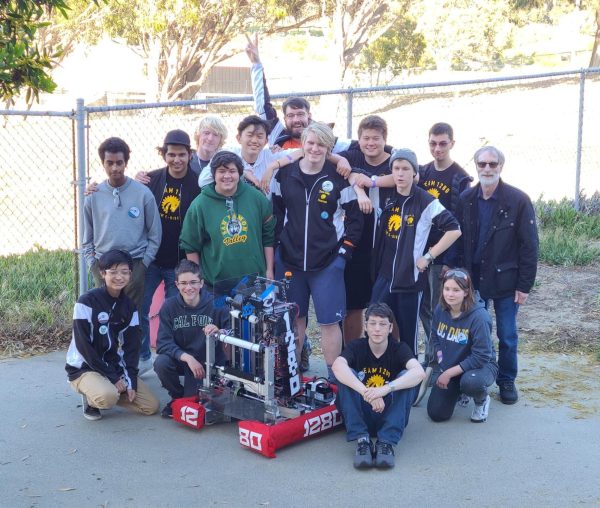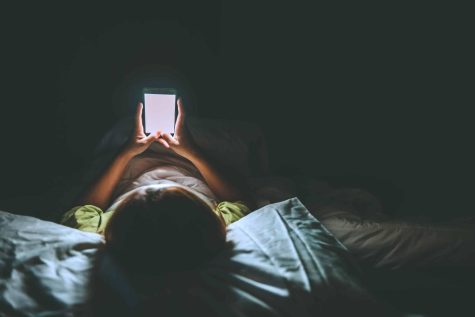The Impact of Media on the Upcoming Election
Globalization has opened new doors for the world as communication has become more relevant than ever. People have the opportunity to access a plethora of information at their fingertips, which has never been available before. Although there are many benefits to accessing an abundance of information in an instant, people forget to see the ways that the media causes more division between individuals. We are so blinded by these new advances of technology that we fail to recognize how algorithms monitor the information that one sees on social media, and how the content continues to affect interactions and relationships all over the world. As the United States moves into an important time in history, citizens have been tuning in to the news and paying close attention to the media outlets. The constant flow of information and news creates biases from these sources and feeds it to the public. Most Americans pay close attention to these articles, and it fuels their political and cultural views. These sources have recently become more radical and biased on both ends of the political spectrum, and especially now, we rarely see a more moderate or neutral view on important events or topics. The increasing impact of the media’s influence on society continues to create a bigger cultural deficit between not only political parties, but individuals as well.
The different contexts of power help to analyze how the media impacts the public, and whether that impact is positive or negative. These contexts of power are created by larger forces, like the media, to help frame how we understand different cultures. The media context has the power to expose the perspectives of individuals from cultures all over the world; however, these contexts could be economically or government-driven and favor different political views or cultures of political parties over others. These media outlets often provide a distorted or imbalanced perspective to persuade readers to agree with their ideas. This occurs throughout any interaction with an electronic device. Every scroll, like, touch, and interaction are monitored by these technology and media companies. Their main goal is to keep the user engaged to amp up the usage in order to increase revenue. Throughout this election, mainstream media continues to draw users into reading more articles and spending more time on these websites and apps. People continue to consume information that aligns with their ideas or sparks new views in their minds to think about and find themselves subsequently spending hours reading articles, doing “research,” and getting deep into the political views promoted by their favored media outlets. According to the documentary, The Social Dilemma, in order to keep a user’s attention on an app, programmers cater content to the users’ ideas or desires so they continue scrolling. “We want them to keep doing this, with their finger, so that you are being programmed at a deeper level”(Orlowski). These big tech companies “want to psychologically manipulate you as fast as possible,” and this is more influential than ever due to the upcoming presidential election. There is a lot of debate and conflict over the candidates and whether they are fit for the position or not. These apps have proven to have the power to psychologically manipulate the mind, and this causes more division amongst the American public. Since one’s content is catered to their interests, people get significantly different articles, videos, and advertisements that show up on their devices; therefore, they create different political opinions. These websites and apps also connect like-minded people, so they collaborate with individuals that share similar beliefs. This contributes to the mob mentality or echo chamber effect where these people comment on their political views and it starts to spiral. This significantly contributes to the immense amount of radicalism and division between both of the political parties during this election. This amount of manipulation of the mind proves that social media significantly contributes to the cultural divide between political parties.
The media also questions the authenticity of individuals who identify with a specific political party. They address certain topics that one must agree with in order to truly be an authentic member of the Democratic or Republican party. This can cause more division because they are placing labels on who people should be and believe in. People could feel these pressures to conform their morals and beliefs to these ideas in order to feel welcome and part of a community. As these ideas become more radical or extreme, the division between political views increases, and especially during this time, the lack of unity negatively impacts the entire population of Americans. Ideology also influences the media for these political parties because it is a set of meanings that structure a cultural group’s view of the world in relation to power. This comes into play with the election because there are certain news sources that are biased to certain political parties and their principles, so their media pieces tend to sway viewers towards those ideas. The ideology of any media outlet impacts its audience’s perspectives and views of the power structures around them. In the present case of the presidential election, these biases and influences continue to contribute to the growing divide in ideas throughout our country.
In a time where communities need to come together, they are being torn apart based on political beliefs. Friendships are being tested as tensions run high due to the difference in political views. It is Republicans versus Democrats, constantly battling over who is more politically correct in the way America should be governed. There are many agitations that people have to face and navigate through, and these include the two presidential candidates with each other. Different sources of news and media have been depicting each candidate extremely differently. There are media outlets that show President Trump as a man of good intentions, but then other sources deem him a white supremacist and racist. There is an imbalance of power between the government and the media, and it is contributing to widening the cultural divide between the political parties and their constituents. These contexts of power, especially the media context, maintain significant influence over the American people, but our society must realize that we have never faced an issue quite like this before. When our parents were kids, people were not exposed to the amount of information and opinions as we are now. There were newspapers, and that’s how information spread. Granted, it was also more neutral compared to the news we hear today regarding controversial topics such as ANTIFA or COVID-19. Therefore, we lack the authenticity of the news and face more biases. People are also criticized if they do not align with a political party completely which contributes to the divide of people. Each political party has a specific ideology for how they perceive the world and the information in it, and since more people feel pressure to authentically fit under these principles, they have more individuals who identify farther left and farther right. This creates a larger divide in ideas and more people clash because they have become opponents over most laws or controversial topics.
As an American teenager, I can see first-hand how influential the media is throughout this country in everyday life. There are Instagram posts expressing and criticizing political views, and the comment section becomes very controversial. Students at my school always post news that they see from Instagram, which is not the most credible source and can lead to the spread of fake news. The app Tik Tok has also become an influential platform when it comes to transmitting information about the presidential election. I have experienced seeing my younger sisters get attacked for their political views because it does not align with their classmates. The impact that social media has established in the minds of young children can be easily seen as the information they consume creates strong opinions on controversial topics. As I have stated before, generations before us have not had to experience opinions like this. Social media and news sources were not easily accessible at any point in time, so the family unit had an outsize influence on a child’s morals and ideas. Videos and articles on social media make children feel like they are a part of something if they align with a specific group or party. They feel as though they belong in this world of conflict and confusion. In the documentary “The Social Dilemma,” viewers learn that “Social media starts to dig deeper and deeper down into the brain stem and take over kids’ sense of self-worth and identity” (Orlowski). The fact that social media has this much power to manipulate the mind should be concerning to not only parents but the children as well. According to the article, 10 TIKTOK STATISTICS THAT YOU NEED TO KNOW IN 2020 [INFOGRAPHIC] by Maryam Mohsin, there are 800 million Tik Tok users across the world, and 41% of those users are between 16 and 21. This means that there are a lot of kids that are younger than that age group because they are not an extreme amount of adults that post content on the app. Kids should not be exposed to this much information, it can be damaging as well as create more divide in ideas. Teenagers yearn to be considered authentic amongst their peers, and through the manipulation of social media it is easy to divide these kids to more extremist views. This ultimately would get them to continue to consume more information and content. The news that appears on my phone is drastically different from the news that is on my friend’s phone, so any debate based on different information streams can do real damage to personal relationships. I have also heard, on many accounts, people say “I would never be friends with a Trump supporter,” and I believe that the media has a significant influence on this idea. Certain media outlets depict Trump as one of the most malicious human beings that has not done anything good for this country, which is both politically biased and factually incorrect. Soon enough, a user’s social media feed is filled with articles that align with their specific ideas and are brainwashing them into thinking their information is the only real truth to know. This is how the media expands the cultural divide between political parties, by feeding each of us information digitally tailored to our attention that subtly sways us towards a specific group, a political party, an ideology, or a product that is being sold to us.
In order to combat this position of power the media has over the people of the United States, people must educate themselves on the ideas both sides support. They must understand what the other political party believes and respect those perspectives whether one agrees with it or not. This will also contribute to the overall unity and nationalism of our country. We all live under the same government, and we should be proud of it. During this difficult time, we need to unite together instead of conforming to the cultural divide the media has created to maintain our attention on our screens. Also, the media needs to be transformed into a less biased form of information. This could be achieved by writing fact based papers instead of editorials or opinionated pieces. However, a big differentiator in this attitude could be taking some time away from digital devices. This collective action would benefit most people as they stay in touch with others physically rather than through a screen. This also would weaken the social media app’s capability to brainwash and manipulate users. People could also attack this issue individually by educating themselves using different sources as well as limit one’s screen time. By doing this, it would positively impact the mental and physical health of society and strengthen intercultural ties here within America.
In conclusion, the influence of the media has created a bigger cultural divide between individuals during the presidential election. As members of society, we must all be aware of the effect the media has on our morals and views. We must be able to differentiate and create opinions for ourselves and not conform to what other people think we should be. Throughout this class, I have learned ways that different organizations hold power over me. Now I am more aware of my place in society and how to combat those contexts of power. I have also learned ways that others may perceive me based on my gender, sexuality, religion, and race. I also learned how to recognize the way others may feel or behave in different situations. I learned that people do view race as a factor and that is what they see when they look at a person. Moving forward from this class, I am going to take what I learned and make the world a better place.



